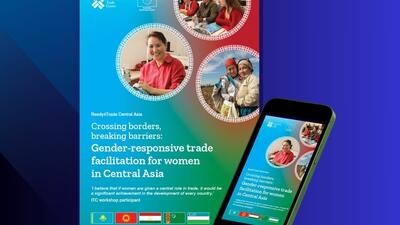
New handbooks unpack EU deforestation rules
The handbooks explain how the European Union Deforestation Regulation (EUDR) affects small businesses. Through concrete business scenarios, the handbooks outline the regulation’s fundamental principles and responsibilities. This helps demystify core concepts, obligations, scope, and implementation processes associated with the regulation.
To reduce carbon emissions and tackle the climate crisis, new policies and regulations are emerging to preserve the world’s forests.
Deforestation is an important global challenge that significantly affects the environment. Governments and organizations are increasingly looking at how to sustainably grow economies while protecting forests.
In June 2023, the European Union Deforestation Regulation (EUDR) took effect. It marks a paradigm shift for trade in coffee, cocoa, palm oil, cattle, rubber, soya and wood. The rules affect raw commodities as well as processed goods liked chocolate, leather, tyres or furniture.
In a nutshell, EUDR seeks to regulate value chains so that commodities entering the EU can prove that they have been made in a deforestation-free process. Importers inside the EU must comply with the rules, but producers must adapt to provide the data needed to comply.
The International Trade Centre (ITC) has developed five EUDR Compliance Handbooks. They’re free to download at the links below. The handbooks provide insights into the intricate landscape of EUDR implementation, which becomes obligatory from 30 December 2024. They are written for businesses engaged in EUDR-affected value chains, enabling a methodical understanding of steps towards compliance.
ITC knows that small businesses in each country face unique challenges and opportunities. These handbooks support small businesses in the green transition while allowing climate action via trade.
Through concrete business scenarios, the handbooks outline the EUDR’s fundamental principles and responsibilities. This helps demystify core concepts, obligations, scope, and implementation processes associated with the regulation.
Small businesses will learn how to assess their current standing, identify areas for improvement, and clarify the extent of their responsibilities, liabilities, and potential risks.
ITC will develop further handbooks, so please bookmark this link to stay abreast of all upcoming updates.
The EUDR handbooks would not have been possible without the invaluable contributions of our diverse partners. Together we crafted comprehensive business scenarios, concrete examples, and detailed case studies that help communicate and understand the compliance mechanisms.
ITC would like to extend special thanks to:
- United Nations Development Programme (UNDP)
- United Nations Environment Programme (UNEP )
- World Resources Institute (WRI)
- The Centre for the Promotion of Imports from Developing Countries (CBI)
- Committee Linking Entrepreneurship Agriculture and Development (COLEAD)
- European Feed Manufacturers' Federation (FEFAC)
- European Cocoa Association (ECA)
- European Coffee Federation (ECF)
- Asociación Española del Café (AECafé)




















